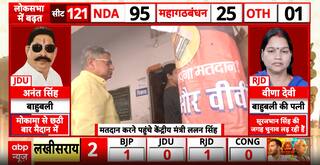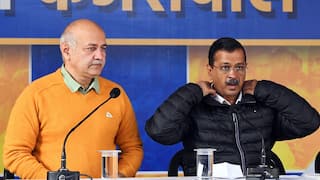As Energy Demand Surges Exponentially, India Focuses On Adopting Sustainable Ways To Meet Rising Need
The automobile industry recently has been bringing in state-of-the-art technologies to make electric vehicles more efficient and cost-effective

India embarked on the journey to make it self-reliant by achieving its Sustainable Development Goals (SDGs) by 2047. In pursuit of meeting its ambitious goals, the government has set a target to meet 50 per cent of its installed electrical capacity from non-fossil sources by 2030, as promised at COP26. To further strengthen its commitment, the government, during the celebration of the country’s 75th Independence Day emphasised the need for faster adoption of clean mobility to have a significant impact on reducing the overall carbon footprint.
With the population of the nation has increased from 34 crore in 1947 to around 140 crore these days, the energy consumption per capita grew from 16 kWh in 1947 to 1,208 kWh in 2019-20. Moreover, the energy demand is expected to rise exponentially in the coming days and the country is looking to adopt sustainable ways to meet the rising demands. In line with this, faster penetration of electric vehicles (EVs) on Indian roads can be an irreplaceable solution.
Even as India eyes to become a $5-trillion economy by 2024, clean and green mobility has emerged as one of the key drivers for sustainable economic growth. India has earlier set an ambitious goal to electrify 70 per cent of all commercial cars, 30 per cent of private cars, 40 per cent of buses and 80 per cent of two- and three-wheelers by 2030.
The fast-paced transformation in the automotive industry has been mostly fueled by the stead-fast transformation in technological advancements – which has been fueled by the pandemic disruptions. The increasing penetration of autonomous driving, Cloud computing, electric vehicles, machine learning, blockchain, networking, etc., has led industry players to chalk out new and robust business plans to stay relevant amidst the transition.
The automobile industry has recently been bringing in state-of-the-art technologies to make electric vehicles more efficient and cost-effective. The government has also been in line with this transformation and has been bringing in favourable policies to boost the application of modern-day technologies and innovations in the field. The focus has been to extend incentives to vehicles with technologically advanced batteries and build a robust EV charging infrastructure.
The growing demands and increasing focus on greener and cleaner modes of transportation have been driving the electric vehicle revolution in the country, especially in the sales of electric three-wheeler vehicles are emerging a clear winner, with more than 200 per cent growth year-on-year (YoY) and the sales of EV three-wheelers have been averaging 55 per cent of total three-wheelers sold already.
However, for a fast-paced transition towards clean mobility, there is a need for a cumulative investment of around Rs 19.7 lakh crore in electric vehicles, charging infrastructure and batteries over the next 10 years. The domestic market in financing EVs will be around Rs 40,000 crore by 2025 and Rs 3.7 lakh crore by 2030 – around 80 per cent growth from the current size of the retail vehicle finance industry.
The Indian EV sector is estimated to be worth around Rs 50,000 crore by 2025 and the government is aiming at making 30 per cent of the vehicles on road hybrid and electric by 2030. The government has also strategised new incentives, policy changes and schemes to promote the penetration of EVs in the country. The government is also considering including EVs in the Reserve Bank of India (RBI)’s priority-sector lending (PSL) to further facilitate smooth financing to boost the sector. This has encouraged several automakers and financial institutions to make substantial investments in the electrification of vehicles.
(The author is managing director of Saera Electric Auto Pvt Ltd)
Disclaimer: The opinions, beliefs, and views expressed by the various authors and forum participants on this website are personal.






































